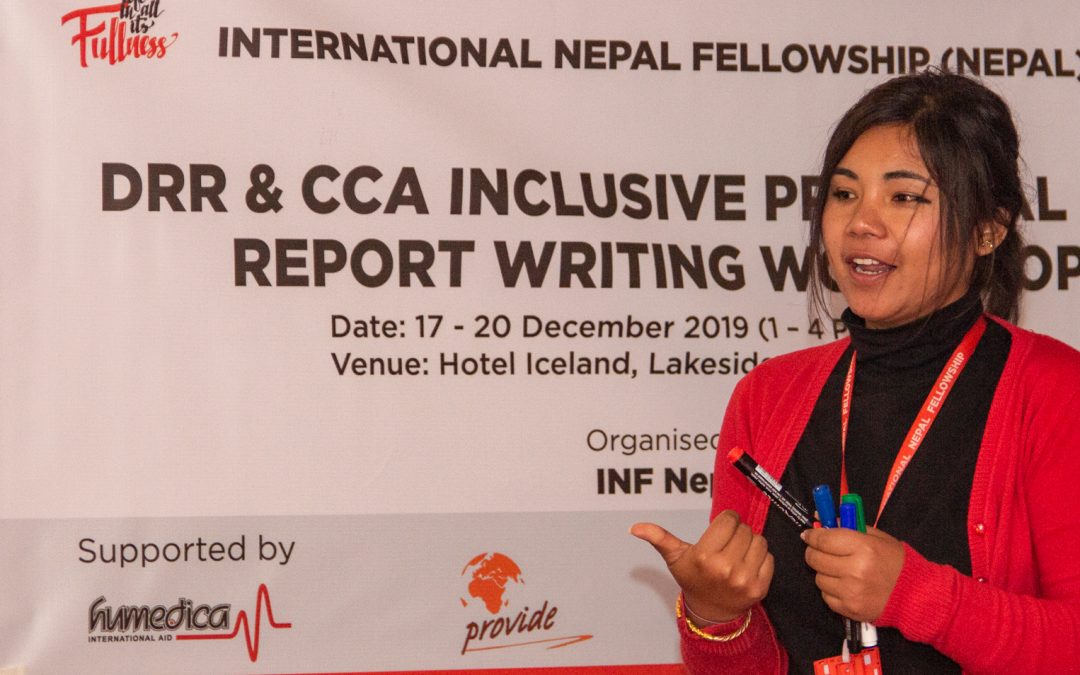We are delighted to welcome Sahara Mishra to the newly-created role of Climate Change Adaptation Officer. Sahara has previously worked in INF’s Disaster Response and Resilience Department and has extensive education in the areas of climate change adaptation and environmental management, so brings a wealth of experience, insight and energy to the role.
We interviewed her about her background and hopes for the role. A longer version of this interview will be published in an upcoming Today in Nepal.
Please tell us a little about your background:
Namaste. I am Sahara Mishra, and I’m 28 years old. I’m a permanent resident of Kathmandu although I currently live in Pokhara. I’m from a Christian family of four people, plus one dog. My father is a pastor, my mother cares for the home and my brother is a web and app developer. We’re a small, and happy, family.
I’ve had a very varied background. On top of everything else, I’m a licensed trekking guide. I have completed a Bachelors degree in Environmental Science and Masters in Population Studies. Prior to joining INF, I was a trainee in the United Nations Development Program (UNDP) Environment Unit for almost a year. I have also completed several online courses related to environmental management, justice and climate change.
Why were you interested in taking on the role and what do you hope to contribute?
I was interested in working with INF because I’ve always had compassion and concern to serve the needy. Before working with INF, I conducted charity activities on my own efforts, including responding to disasters.
I have had an interest to work on climate change and disaster risk reduction ever since my traineeship. This is an amazing opportunity to combine my interest and passion with my profession. The role of the Climate Change Adaptation Officer is to support effective responses to many social and environmental issues.
What do you see as the major climate changes faced by poor communities in Nepal?
There are many. Nepal is one of the most vulnerable countries in the world to the impacts of climate change. Most people in the country are dependent on agriculture and the annual monsoon rains for their livelihoods and food security, so the changes we are seeing to monsoon rainfall patterns affect people greatly. We are also vulnerable to climate-related disasters like floods, landslides, storms and droughts.
One impact, in particular, I will mention is that climate change is forcing some communities to migrate, especially from high altitude places like Manang and Mustang, because of loss of water availability and soil quality. Being forced from the place they were born, raised, and lived their whole lives, leads to the loss of traditional and cultural heritage for these communities and negatively affects their mental health and wellbeing.
How are you coping with Nepal’s coronavirus lockdown?
The situation of lockdown from the COVID-19 pandemic has indeed brought turmoil in everyday life. Positively for me, the lockdown brought me back to my family in Kathmandu and I have spent quality time with them for more than a month. As well as being active on office work, I am using this time to to be productive and keep myself entertained also. I am praying in solidarity for a quick end to the COVID-19 pandemic. Please stay safe!



